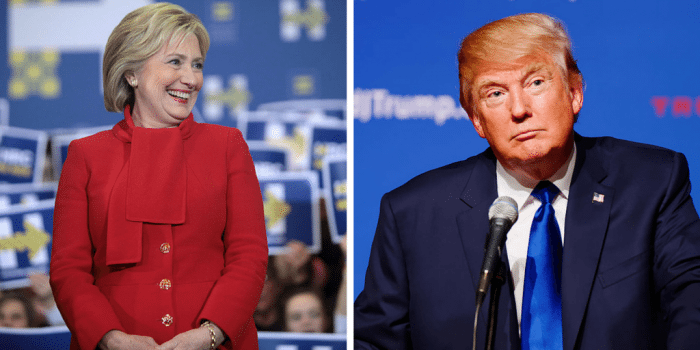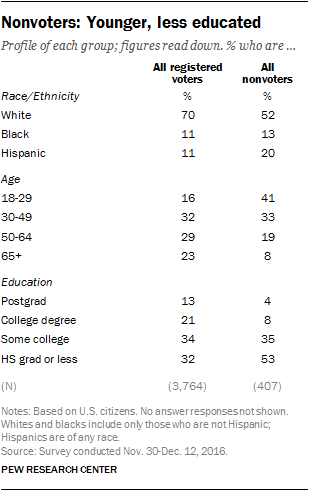For all those who mocked and shamed this page (you know who you are) for publishing opinion pieces that candidates such as Hillary Clinton (and of course, Donald Trump) were not attracting voter excitement or enthusiasm among young U.S. Latino voters, read what the Pew Research Center published this week about the nonvoters of 2016. Here is the excerpt and graphic that got our attention:
Those who say they did not vote are more likely to be younger, less educated and nonwhite than registered voters overall. About four-in-ten citizen nonvoters (41%) are under 30 years of age, compared with only 16% of all registered voters. And Hispanics make up a greater share of nonvoters than registered voters (20% vs. 11%); conversely, while 70% of all registered voters are white, just 52% of nonvoters are.
In addition, take into account that about 27 million Latinos were eligible to vote in 2016, but in the end, even though the raw numbers will be historic, the share of eligible voters who voted in 2016 will not be that high. Thursday morning on NPR, Pew’s Mark Hugo Lopez echoed the turnout issue:
We won’t know the percentage of Latinos who participated in the 2016 election until Census data is released in the spring. But for some background, 48 percent of eligible Hispanic voters turned out in the 2012 election, down from 49.9 percent in 2008.
Lopez says it’s highly likely Latino turnout saw a small uptick this November, just based on sheer population growth. “Although how much of a slight uptick remains to be seen,” he said. “It’s unlikely the Hispanic voter turnout rate matched that of whites or matched that of blacks … It doesn’t seem like there was a Trump effect or a surge in Latino voter participation that many analysts were expecting.”
You can listen to the NPR story here:
For anyone (especially you, establishment Democrats) who was hoping that young Latinos were going to come out in record turnout and blindly vote for an establishment Democrat because of Trump, stop hoping. Young Latinos didn’t buy it in the end. (Yes, even we hoped the same way two weeks before the election.) There are now bigger issues to address and it’s time to have honest conversations about it.




